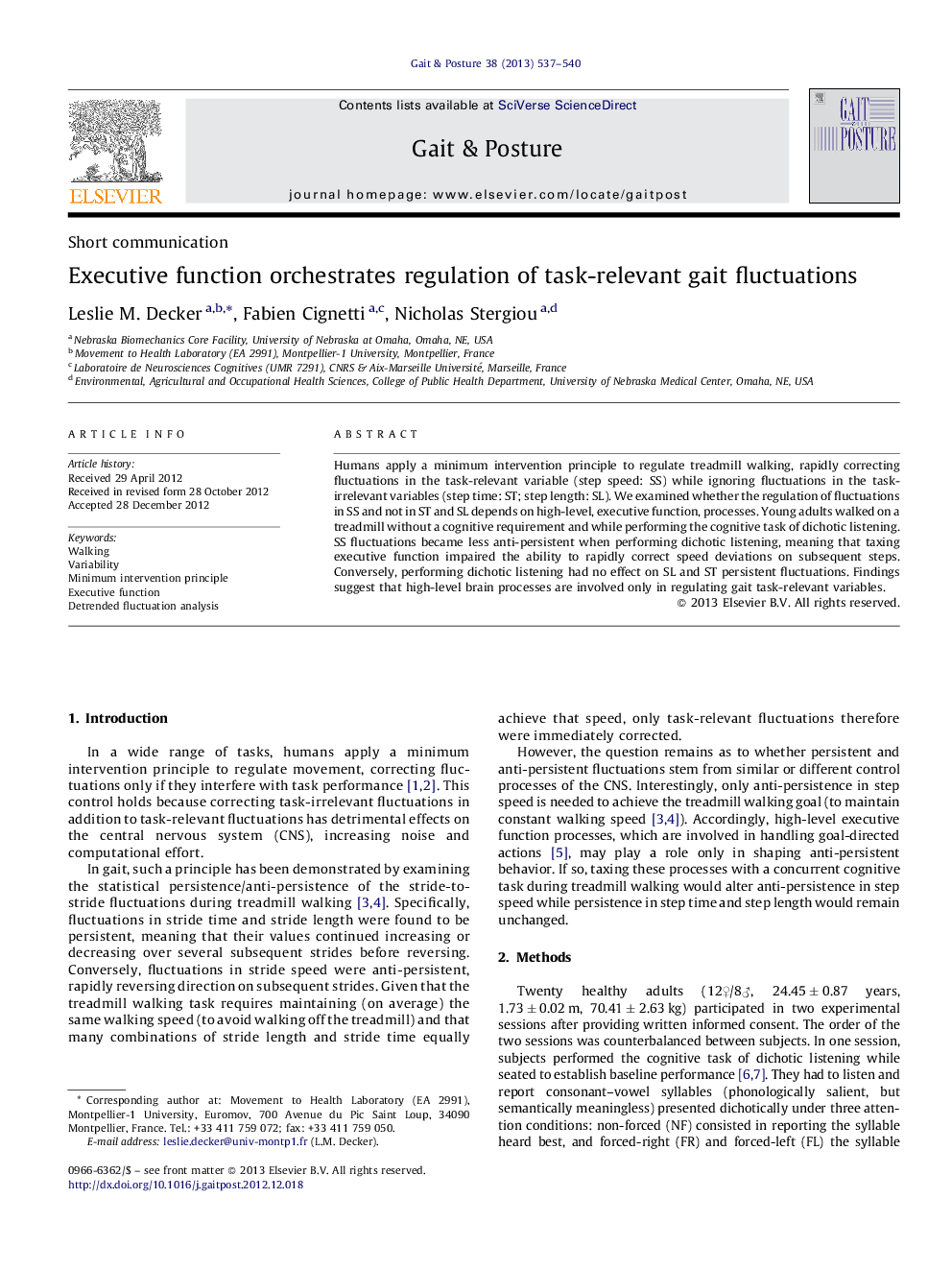| Article ID | Journal | Published Year | Pages | File Type |
|---|---|---|---|---|
| 6206663 | Gait & Posture | 2013 | 4 Pages |
Humans apply a minimum intervention principle to regulate treadmill walking, rapidly correcting fluctuations in the task-relevant variable (step speed: SS) while ignoring fluctuations in the task-irrelevant variables (step time: ST; step length: SL). We examined whether the regulation of fluctuations in SS and not in ST and SL depends on high-level, executive function, processes. Young adults walked on a treadmill without a cognitive requirement and while performing the cognitive task of dichotic listening. SS fluctuations became less anti-persistent when performing dichotic listening, meaning that taxing executive function impaired the ability to rapidly correct speed deviations on subsequent steps. Conversely, performing dichotic listening had no effect on SL and ST persistent fluctuations. Findings suggest that high-level brain processes are involved only in regulating gait task-relevant variables.
⺠We examined the origins of task-relevant and task-irrelevant fluctuations in gait. ⺠Decreasing cognitive resources altered regulation of task-relevant fluctuations only. ⺠Task-irrelevant fluctuations come from low-level processes and biomechanical factors. ⺠Task-relevant fluctuations depend also on high-level brain processes.
